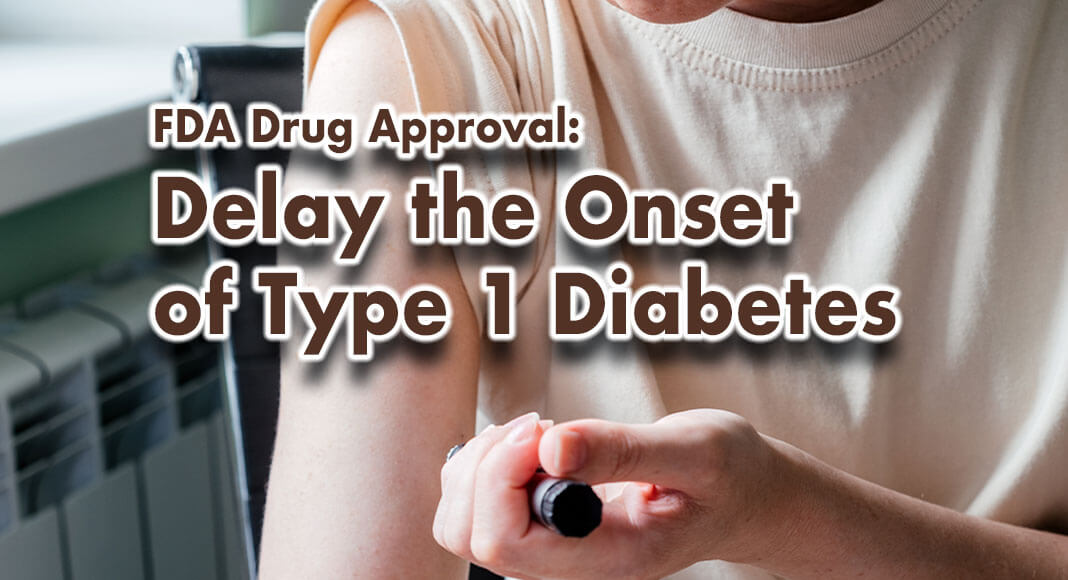
Mega Doctor News
The U.S. Food and Drug Administration approved Tzield (teplizumab-mzwv) injection to delay the onset of stage 3 type 1 diabetes in adults and pediatric patients 8 years and older who currently have stage 2 type 1 diabetes.
“The approval of a first-in-class therapy adds an important new treatment option for certain at-risk patients,” said John Sharretts, M.D., director of the Division of Diabetes, Lipid Disorders, and Obesity in the FDA’s Center for Drug Evaluation and Research. “The drug’s potential to delay clinical diagnosis of type 1 diabetes may provide patients with months to years without the burdens of disease.”
Type 1 diabetes is a disease that occurs when the immune system attacks and destroys the cells that make insulin. People with a type 1 diabetes diagnosis have increased glucose that requires insulin shots (or wearing an insulin pump) to survive and must check their blood sugar levels regularly throughout the day. Although it can appear at any age, type 1 diabetes is usually diagnosed in children and young adults. A person is at higher risk for type 1 diabetes if they have a parent, brother or sister with type 1 diabetes, although most patients with type 1 diabetes do not have a family history.
Tzield binds to certain immune system cells and delays progression to stage 3 type 1 diabetes. Tzield may deactivate the immune cells that attack insulin-producing cells, while increasing the proportion of cells that help moderate the immune response. Tzield is administered by intravenous infusion once daily for 14 consecutive days.
Tzield’s safety and efficacy were evaluated in a randomized, double-blind, event-driven, placebo-controlled trial with 76 patients with stage 2 type 1 diabetes. In the trial, patients randomly received Tzield or a placebo once daily via intravenous infusion for 14 days. The primary measure of efficacy was the time from randomization to development of stage 3 type 1 diabetes diagnosis. The trial results showed that over a median follow-up of 51 months, 45% of the 44 patients who received Tzield were later diagnosed with stage 3 type 1 diabetes, compared to 72% of the 32 patients who received a placebo. The mid-range time from randomization to stage 3 type 1 diabetes diagnosis was 50 months for the patients who received Tzield and 25 months for those who received a placebo. This represents a statistically significant delay in the development of stage 3 type 1 diabetes.
The most common side effects of Tzield include decreased levels of certain white blood cells, rash and headache. The use of Tzield comes with warnings and precautions, including premedicating and monitoring for symptoms of Cytokine Release Syndrome; risk of serious infections; decreased levels of a type of white blood cell called lymphocytes; risk of hypersensitivity reactions; the need to administer all age-appropriate vaccinations prior to starting Tzield; as well as avoiding concurrent use of live, inactivated and mRNA vaccines with Tzield.
Tzield received Priority Review and Breakthrough Therapy designations for this indication.
The FDA granted the approval of Tzield to Provention Bio.
Information Source: FDA
American Diabetes Association Statement on FDA Approval of Teplizumab
“This is an historic moment for all people affected by type 1 diabetes (T1D). The approval of Teplizumab, the first-ever treatment approved for the delay of T1D, is a significant step forward for everyone impacted by this chronic disease. People with T1D require life-long insulin replacement therapy, so to be able to provide an individual with a 2-year delay from the symptoms and burden of T1D is a tremendous accomplishment as we look towards finding a cure. There will likely be long-term benefits for blood glucose management and the reduction or delay of acute and long-term complications. The immeasurable benefits of improved quality of life will be felt not only by those diagnosed with T1D, but also by their families. Today is a great day for the diabetes community.” their families. Today is a great day for the diabetes community.” – Dr. Robert Gabbay, Chief Scientific and Medical Officer for the American Diabetes Association.











